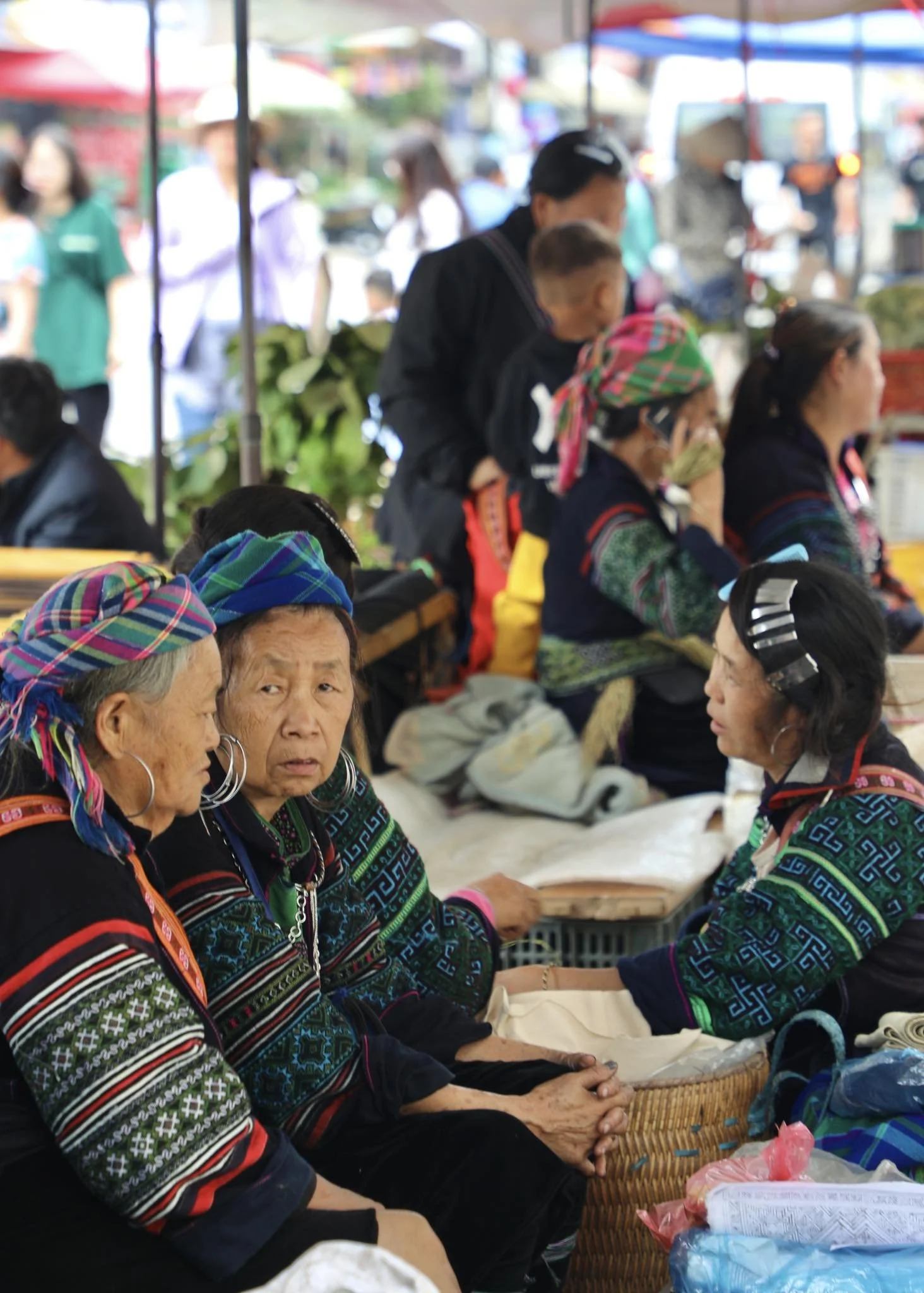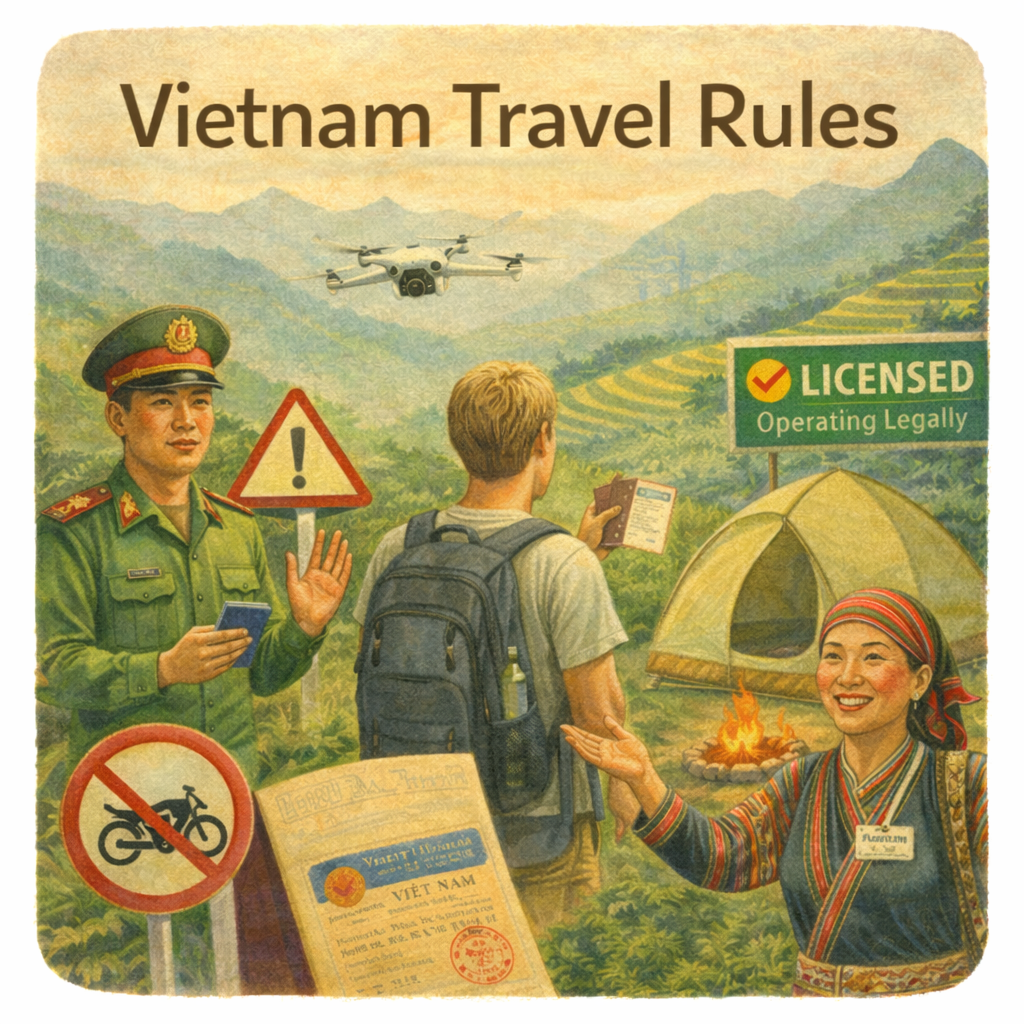Do’s and Don’ts in Vietnam: Ethical Travel Guide for Respectful Cultural Experiences
Do’s and Don’ts for Travellers in Vietnam: An ETHOS Perspective
Travelling in Vietnam is a chance to connect with cultures that have been shaped by mountains, rivers, and centuries of resilience. In the highlands of Sapa and the wider border regions, these encounters are not simply about seeing but about listening, learning, and honouring the people who welcome you. At ETHOS we encourage travellers to move slowly, tread lightly, and carry an awareness that each interaction leaves an imprint.
Do’s: Travelling with Respect
Do greet with warmth and humility. A smile is the simplest bridge, whether meeting an elder in a mountain village or a child along the trail. Learn a few local words, and use them with care.
Do accept hospitality with gratitude. In many communities, sharing food and drink is a sign of trust. A small gift in return, or a genuine word of thanks, shows respect for that generosity.
Do dress modestly. In rural and highland areas, covering shoulders and knees is considered respectful. Traditional clothing is not only beautiful, but carries spiritual meaning. Admire it, photograph only when invited, and remember that these garments are expressions of identity rather than costumes.
Do walk softly on the land. Stick to paths when trekking, leave no litter, and be mindful of crops. Farming families rely on every stalk of rice and every herbal plant. What may seem like wild terrain is someone’s livelihood.
Do listen to stories. Oral tradition is a living archive. When a farmer, artist, or elder shares a memory, they are offering part of themselves. Listening attentively is one of the deepest forms of respect.
Don’ts: Avoiding Harm
Don’t bargain aggressively. Negotiation is part of life in markets, yet a fair exchange honours the time and skill behind each item. Remember that embroidery, weaving, and batik take months to create.
Don’t photograph without permission. A camera can either connect or divide. Always ask before taking portraits, especially of children or elders. Some communities view photography as intrusive if not invited.
Don’t impose your own rhythm. Life in the mountains flows with the seasons and the weather. Patience is essential. Delays, long walks, or unexpected changes are part of the journey. Embrace them as part of the story.
Don’t waste water, firewood, or food. These are precious in remote areas. Accept what is offered, and take only what you can use. Leaving food unfinished may be seen as wasteful.
Don’t reduce culture to spectacle. Festivals, rituals, and ceremonies are sacred. Attend only when invited, watch with respect, and resist the urge to intrude or interpret too quickly.
Travelling in the Spirit of ETHOS
These guidelines are not rules to restrict you, but reminders of how travel can be regenerative. Every choice has consequence: the way you walk through a rice terrace, the way you greet a grandmother at her loom, the way you listen to the rhythm of a song in a language you may not understand. In travelling with awareness, you become part of a respectful exchange, one that values connection over convenience and seeks not to take from communities but to walk alongside them.
Click here to read more about essential travel tips and regulations for travelling in Vietnam.


